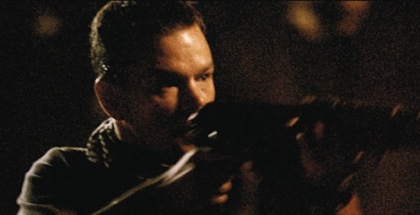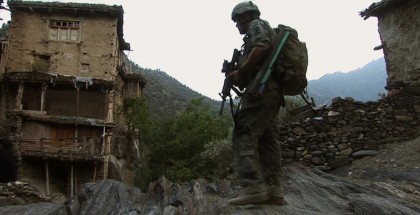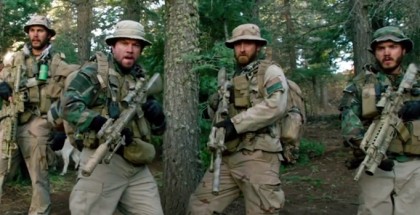Civil War: A gripping, chillingly plausible thriller
Review Overview
Cast
9Chills
9Questions
9Ivan Radford | On 06, Jul 2024
Director: Alex Garland
Cast: Kirsten Dunst, Wagner Moura, Cailee Spaeny, Stephen McKinley Henderson, Nick Offerman
Certificate: 15
From Ex Machina and Annihilation to Men and Sunshine, Alex Garland is storyteller with a knack for tapping into timely issues with a timeless humanity. Civil War is no exception: his pertinent dispatch feels like it’s ripped from the page of tomorrow’s history books.
The film opens in the middle of the titular civil war, with the USA not just up in arms with itself but the combat alarmingly long in the tooth. The president (Nick Offerman) is holed up in the White House, while rubble-strewn cities are populated by snipers on rooftops and a two-state faction (Texas and California, together calling themselves the Western Forces) is on the verge of toppling Washington, DC.
Amid the conflict, war photographer Lee (Kirsten Dunst) and reporter Joel (Wagner Moura) are on a mission to get to the White House and interview the president. It is, Joel argues, the only story left to report – a sign of just how far the White House has retreated behind its own wall of defensive propoganda. Indeed, we’re told journalists are shot on sight in that part of the country.
While a group of impartial observers might seem like a strange choice of protagonist for a war film, those details give us a clue to what Garland is wanting to achieve: a reminder of the importance of facts and holding power to account in an uncertain, confused age of misinformation and divisive rhetoric.
Lee and Joel are soon joined in their travels by veteran journalist Sammy (Stephen McKinley Henderson) and naive student Jessie (Cailee Spaeny), who desperately wants to be like Lee. And so our motley crew take us on a tour of a dramatically unfamiliar America, through Pennsylvania and Virgin to Charlottesville and DC. It’s a deliberately disorienting ride, and Garland’s ability to stage dystopia on an unsettling scale is at its height. An eerily peaceful high street conceals darker truths, while an abandoned Christmas fayre in the middle of the summer is a hauntingly odd setting for a showdown.
Most disturbing of all is a brief appearance by Jesse Plemons as a soldier performing a clean-up operation. “What kind of American are you?” he asks them while holding a gun, the very question itself giving us an indication of the kind of people who are now wielding power. The nailbiting 109 minutes are punctuated with relentless moments of unflinching tension and horror, with newsroom-like images, photos and cuts giving the footage a documentary feel that adds weight to the glossy, convincing production – the images feel like a sequel to the very real news reports of the attack on the US Capitol in January 2021.
Kirsten Dunst reminds us just how fantastic she is, bringing a sorrowful regret to her seasoned photographer, whose ability to remain detached is now put to a new kind of test. The always-brilliant Wagner Moura channels his hyperactive charm into an excitement that teases the other end result of working in a warzone for too long – he’s contrasted gently by the quiet Henderson, who brings perspective and wisdom to our diverse bunch. And, giving heart to a supposedly dispassionate team, Spaeny holds her own like she’s been acting for decades, balancing her eager young adult’s ambition with an inexperience that leaves her ill-equipped to face such shocking sights. Together, they make for a compelling collection of characters all grappling with the moral dilemma of what they are prepared to see, do and record.
The film takes a surprising decision to remain, like its protagonists, non-partisan in its presentation of the national split. That might disappoint some, but it stops anything getting in the way of its harrowing, anti-war vision and gives the film’s impact an added edge. While the premise recalls the recent Bushwick, Garland goes one step further by not even explaining the source of the civil war. It’s not that Civil War is apolotical – it’s very much interested in the politics – but that it bravely looks past the politics to imagine the nightmare of a civilisation in which politics has become irrelevant. And, looming over all the questions it leaves behind, is another pointed, poignant thought: in such a divided nation, would impartial, objective journalism even be listened to anymore? This topical thriller is less timely and more a ticking time bomb for a chillingly plausible future.





















